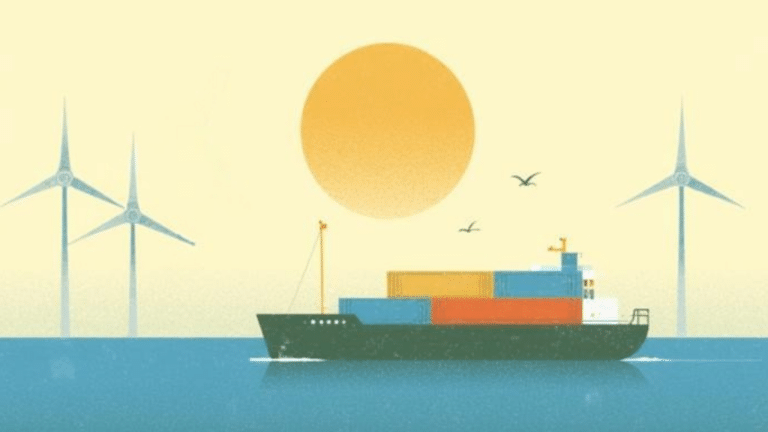Could a strategic lithium reserve kickstart US supply chain development?
NEW YORK -- A strategic lithium reserve is being mooted as a solution to stabilize volatile prices that have hindered American mining projects, allowi
Current Access Level “I” – ID Only: CUID holders, alumni, and approved guests only
This website uses cookies as well as similar tools and technologies to understand visitors’ experiences. By continuing to use this website, you consent to Columbia University’s usage of cookies and similar technologies, in accordance with the Columbia University Website Cookie Notice.
Our work is committed to independent and nonpartisan research that meets the high standards of academic integrity and quality at Columbia University.
Our initiatives and programs are designed to address critical needs in key focus areas around energy and climate policy.
Explore our expert insights and analysis in leading energy and climate news stories.
NEW YORK -- A strategic lithium reserve is being mooted as a solution to stabilize volatile prices that have hindered American mining projects, allowi
Get the latest as our experts share their insights on global energy policy.
This Energy Explained post represents the research and views of the author(s). It does not necessarily represent the views of the Center on Global Energy Policy. The piece...

Hear in-depth conversations with the world’s top energy and climate leaders from government, business, academia, and civil society.
This has been a crucial year for US energy policy. The passage of the One Big Beautiful Bill Act eliminated many of the clean energy incentives that were...

Find out more about our upcoming and past events.
On January 1, 2026, the European Union's highly-anticipated Carbon Border Adjustment Mechanism (CBAM) will take effect. Introduced in 2023, CBAM will require the importers of certain carbon-intensive goods...

We are the premier hub and policy institution for global energy thought leadership. Energy impacts every element of our lives, and our trusted fact-based research informs the decisions that affect all of us.
CEO, First Ammonia

Joel H. Moser is the Chief Executive Officer of First Ammonia, a Climate Tech company that is a leader in the production of green ammonia (ammonia produced from water and renewable power) which is critical to achieving a carbon emissions free future as a carbon-free transportation fuel, a solution to the intermittency challenge of renewable power and as a pathway to the decarbonization of agriculture. First Ammonia is also developing next generation green ammonia mobility applications. Moser is an Adjunct Professor at Columbia University School of International and Public Affairs. He is a member of the Council on Foreign Relations and a founding and executive committee member of the Advisory Board of the Columbia University Global Energy Policy Center.
Moser is an infrastructure expert for the Global Future Council of the World Economic Forum, he served as a member of the Expert Committee for the World Bank Group’s 2018 Procuring Infrastructure Public-Private Partnerships Report and is serving as a member of the Expert Committee for the World Bank Group’s Benchmarking Infrastructure 2020 study. He served on the Council on Foreign Relations’ study group on transatlantic relations and as a member of the Brookings Institution Governance Studies’ working group on inbound US foreign direct investment by sovereign wealth funds.
Moser’s career has spanned multiple aspects of the energy industry and infrastructure development. Prior to the formation of First Ammonia, Moser led Aquamarine Investment Partners, an investor and developer focused on the energy transition and decarbonization. Prior to his work at Aquamarine, Moser practiced law at global law firms, recognized as a leading individual lawyer in Projects by Chambers and served as a Senior Partner and practice leader in international energy and infrastructure. Moser was lead issues advisor for H. Carl McCall’s 1993 election as New York Comptroller and then served as counsel and advisor to the transition team. Following the tragedies of 9/11, he was appointed as pro bono infrastructure counsel to the Lower Manhattan Development Corporation, the umbrella agency charged with rebuilding at the Ground Zero site. He served as lead counsel to the NY Mets in the development and award-winning financing of the team’s new stadium.
Moser is a contributor to the public discussion of energy and infrastructure investment issues. His articles have appeared in the Washington Post, Columbia FDI Perspectives, Brookings Institution Governance Studies, World Economic Forum’s Global Agenda, and Columbia Political Review, among others. He has served as a columnist for Forbes on investment in energy and infrastructure.
Moser has served as a trustee of many institutions including Bank Street College, Children’s Museum of the East End, Citizens Budget Commission, Red Cross of Greater New York, NYSCI (New York Hall of Science), and Alliance for Downtown New York. Moser served for over a decade as a member of the Advisory Council of the New York State and Local Retirement System.
A native New Yorker and father of four, Moser resides in New York City and Los Angeles with his wife, Dr. Wednesday Martin, an author and cultural anthropologist.
Get the latest news and research on energy & climate policy.
"(required)" indicates required fields